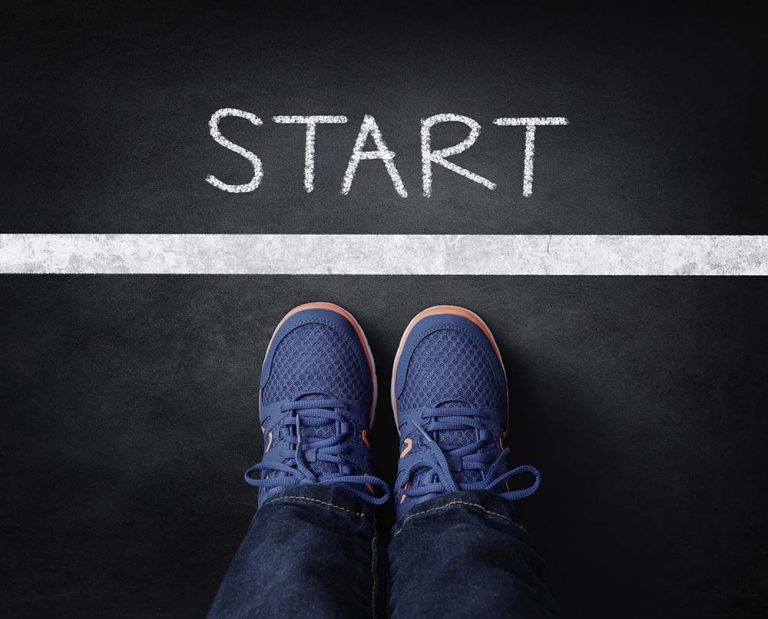
Personal Branding 101: Your First Step to Business Success
In the world of business, your personal brand is your calling card. It’s the unique blend of skills, experience, and personality that you want the world to see.
Personal branding is not just about self-promotion. It’s about establishing your identity, building a reputation, and showcasing what sets you apart from the crowd.
Whether you’re an entrepreneur, a job seeker, or a seasoned professional, a strong personal brand can open doors to new opportunities. It can help you attract the right clients, projects, or jobs that align with your values and skills.
In this guide, we’ll delve into the world of personal branding. We’ll explore its significance in today’s competitive market and how it can be your first step towards business success.
We’ll provide actionable insights on creating a personal branding stamp that resonates with your audience. We’ll also discuss strategies for enhancing your personal brand in Spokane and beyond.
Whether you’re just starting out or looking to refine your personal brand, this guide will equip you with the knowledge and tools you need. So, let’s embark on this journey of personal branding together.
Understanding Personal Branding and Its Significance
Personal branding is more than just a buzzword. It’s a powerful tool for individuals and professionals to differentiate themselves in the market.
What is Personal Branding?
At its core, personal branding is about understanding your unique value proposition. It’s about identifying the skills, experience, and passion that make you unique.
Your personal brand is the image or impression that people have of you. It’s what people say about you when you’re not in the room.
Why Personal Branding Matters in Business
In today’s digital age, personal branding has become more important than ever. It’s not just for celebrities or public figures.
Personal branding is crucial for anyone looking to advance their career, start a business, or simply make a mark in their industry. Here’s why:
- Career Advancement: A strong personal brand can open doors to new opportunities. It can help you stand out in a crowded job market and attract better job offers.
- Business Growth: For entrepreneurs, personal branding can help attract investors and customers. It can build trust and credibility, which are crucial for business success.
- Networking: Personal branding can help you build a strong network. It can attract like-minded professionals and open doors to collaborations and partnerships.
- Online Reputation: In the digital age, your online reputation is your personal brand. It’s important to manage and protect it, as it can have a significant impact on your career or business.
Crafting Your Personal Branding Stamp
Creating a personal branding stamp is a strategic process. It involves introspection, creativity, and consistency.
Identifying Your Unique Value Proposition
The first step is to identify your unique value proposition. This is what sets you apart from others in your field.
Think about your skills, experiences, and passions. What do you bring to the table that others don’t?
Developing a Personal Branding Statement
Once you’ve identified your unique value proposition, it’s time to craft your personal branding statement. This is a concise, powerful statement that encapsulates who you are as a professional.
Your personal branding statement should communicate your unique value proposition in a compelling way. It should resonate with your target audience and leave a lasting impression.
Visual Elements and Consistency Across Platforms
Visual elements play a crucial role in personal branding. They help to create a memorable and recognizable brand.
Here are some key visual elements to consider:
- Logo: A unique logo can help to create a strong brand identity. It should reflect your personal style and professional values.
- Color Scheme: Colors can evoke emotions and perceptions. Choose a color scheme that aligns with your brand personality.
- Typography: The fonts you use can also convey a certain mood or impression. Choose fonts that are legible and reflect your brand personality.
- Images: High-quality, professional images can enhance your personal brand. They can help to tell your story and showcase your personality.
Remember, consistency is key in personal branding. Ensure that your visual elements and branding statement are consistent across all platforms. This includes your website, social media profiles, business cards, and any other touchpoints.
Amplifying Your Personal Brand in Spokane and Beyond
Once you’ve crafted your personal branding stamp, the next step is to amplify it. This involves promoting your brand both locally and online.
Leveraging Local Networks and Communities
In Spokane and other local markets, networking is a powerful tool. It can help you to build relationships and gain visibility.
Consider joining local business groups or industry associations. Attend networking events and engage with your local community.
Building an Online Presence Through Social Media
Social media is a key platform for personal branding. It allows you to reach a global audience and showcase your brand in real-time.
Start by choosing the right social media platforms. Consider where your target audience spends their time online.
Then, create engaging content that reflects your personal brand. This could include blog posts, videos, infographics, or podcasts.
Remember to engage with your audience. Respond to comments, share relevant content, and participate in online discussions. This will help to build your online community and amplify your personal brand.
Measuring and Adjusting Your Personal Branding Efforts
As with any marketing strategy, it’s important to measure the success of your personal branding efforts. This will help you to understand what’s working and what needs to be adjusted.
Monitoring Your Online Reputation
One way to measure your personal brand is by monitoring your online reputation. This involves keeping track of what others are saying about you online.
There are various tools available that can help with this. These tools can alert you when your name is mentioned online, allowing you to respond promptly.
Setting Goals and Conducting a Personal Brand Audit
Another important step is to set goals for your personal brand. These goals should be specific, measurable, achievable, relevant, and time-bound (SMART).
Once you’ve set your goals, conduct a personal brand audit. This involves reviewing all aspects of your personal brand to ensure they align with your goals.
Here are some areas to consider in your audit:
- Online presence: Are you active on the right social media platforms? Is your content consistent and engaging?
- Networking: Are you building relationships with the right people? Are you attending relevant events?
- Reputation: What are others saying about you online? Are there any negative comments that need to be addressed?
- Goals: Are you on track to achieve your personal branding goals? If not, what adjustments need to be made?
Personal Branding for Career Advancement
Personal branding is not just about promoting yourself. It’s also about advancing your career. Whether you’re a job seeker or an entrepreneur, a strong personal brand can open doors to new opportunities.
Differentiating Yourself in the Job Market
In today’s competitive job market, having a unique personal brand can set you apart from other candidates. It’s not just about your skills and experience. It’s also about who you are as a person and what you stand for.
Your personal brand can showcase your values, passions, and unique perspective. This can make you more memorable and appealing to potential employers.
Attracting Investors and Opportunities as an Entrepreneur
For entrepreneurs, personal branding is equally important. A strong personal brand can attract investors, partners, and customers to your business.
Investors are not just investing in a business idea. They’re also investing in you. Your personal brand can show them why you’re the right person to make that business idea a success.
Similarly, customers and partners are more likely to engage with a business if they feel a personal connection with the person behind it. Your personal brand can help to build that connection.
Conclusion: The Continuous Journey of Personal Branding
Personal branding is not a one-time task. It’s a continuous journey that evolves with your career and personal growth.
Maintaining and Evolving Your Brand Over Time
As you gain new experiences and skills, your personal brand should reflect these changes. Regularly updating your personal branding stamp can ensure it remains relevant and authentic.
Embracing Adaptability and Lifelong Learning
In the ever-changing world of business, adaptability is key. Embrace lifelong learning to keep your personal brand fresh and engaging. Remember, your personal brand is a reflection of your journey, not just your destination.


